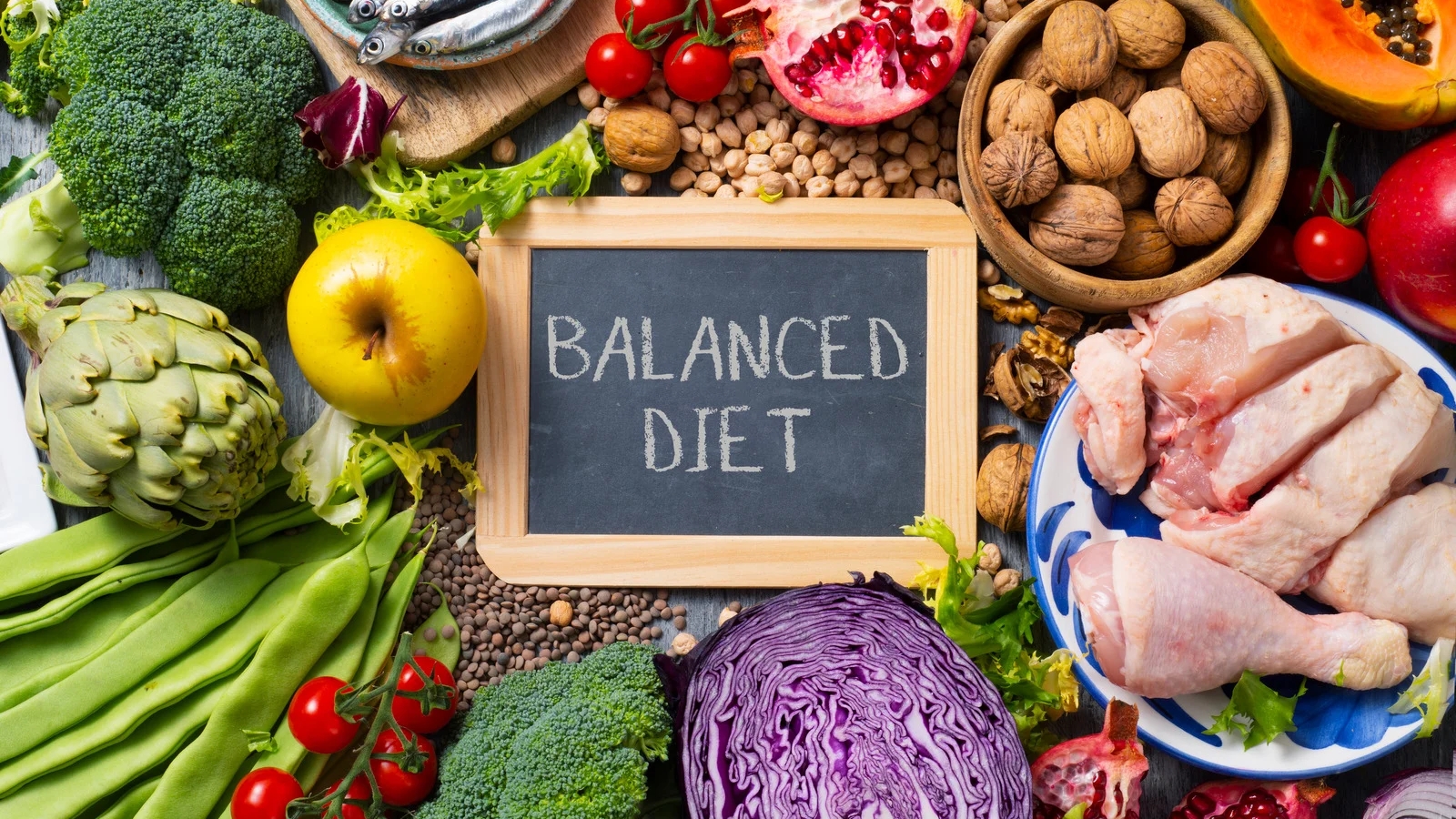Your hormones are chemical messengers that control almost every process in your body, from energy levels and mood to metabolism and sleep. When your hormones are in balance, you feel alert, focused, and emotionally steady. But when they fluctuate due to stress, poor diet, lack of sleep, or lifestyle habits, you may experience fatigue, irritability, weight gain, and low motivation.
Balancing your hormones naturally doesn’t require drastic measures. With consistent, healthy habits, you can support your body’s ability to produce and regulate hormones efficiently. These small changes can help you feel more energetic, improve your sleep, and enhance your overall well-being. Here are ten natural ways to balance your hormones and boost your energy every day.
1. Eat Balanced Meals With Protein, Fiber, And Healthy Fats
The food you eat directly affects hormone production and regulation. Balanced meals that include lean protein, fiber, and healthy fats help stabilize blood sugar and support insulin function. When blood sugar stays steady, your body can maintain energy levels without spikes and crashes that throw hormones off balance.
To support hormone health:
- Include protein in every meal, such as eggs, chicken, tofu, or beans.
- Add healthy fats like avocado, olive oil, and nuts.
- Choose complex carbs such as vegetables, quinoa, and whole grains.
This combination fuels your body with steady energy and supports the production of hormones such as insulin, estrogen, and thyroid hormones. Avoid processed foods and sugary snacks, which can cause hormonal imbalances and fatigue.
Eating nutrient-dense meals throughout the day helps your metabolism work efficiently and keeps your hormones stable, improving both focus and stamina.
2. Get Enough Sleep Every Night
Sleep plays a key role in restoring hormone balance. During deep sleep, your body regulates cortisol, melatonin, and growth hormone levels. Poor sleep interferes with this process, leading to stress, low energy, and mood swings.
Aim for 7–9 hours of restful sleep each night. Create a consistent bedtime routine that allows your body to relax before bed.
Simple ways to improve sleep quality:
- Turn off screens at least 30 minutes before bedtime.
- Keep your room dark, calm, and quiet.
- Avoid caffeine and large meals in the evening.
When you sleep well, your body resets its hormonal rhythm naturally. This helps lower stress levels, improve mood, and maintain steady energy throughout the day.
3. Manage Stress Levels
Chronic stress causes your body to produce too much cortisol, the hormone that helps you handle pressure. When cortisol remains high for too long, it disrupts other hormones such as estrogen, progesterone, and thyroid hormones. This imbalance can lead to fatigue, poor sleep, and emotional ups and downs.
You can lower stress and balance cortisol by adopting simple relaxation practices. These don’t have to take much time, but can make a significant impact on your hormone health.
Try these stress-reducing activities:
- Practice deep breathing for a few minutes.
- Take short walks outdoors to clear your mind.
- Try meditation or gentle yoga.
- Spend time doing activities you enjoy.
Managing stress regularly helps your body maintain a calm, balanced state, supporting better sleep and steady energy levels.
4. Move Your Body Regularly
Exercise improves circulation, boosts mood, and helps regulate hormones such as insulin, cortisol, and serotonin. It also enhances your body’s ability to use energy efficiently, which prevents fatigue and supports mental clarity.
You don’t need intense workouts to see benefits. Consistency is more important than duration or difficulty.
Aim for at least 30 minutes of activity most days of the week. Effective forms of exercise include:
- Brisk walking
- Swimming
- Strength training
- Cycling
- Yoga or Pilates
Exercise naturally boosts endorphins, improving your mood and focus. It also reduces cortisol levels, promoting relaxation and better hormonal balance.
5. Stay Hydrated Throughout The Day
Water is essential for hormone transport and detoxification. Dehydration can slow down your metabolism and increase stress hormones, leaving you feeling tired and sluggish.
To stay hydrated:
- Drink at least 8–10 glasses of water daily.
- Start your day with a glass of water before your morning beverage.
- Carry a reusable water bottle to remind yourself to drink regularly.
Include water-rich foods like cucumber, oranges, and watermelon to supplement hydration.
Proper hydration supports your adrenal glands and helps flush out toxins that can interfere with hormone production. This keeps your energy steady and your body functioning efficiently.
6. Eat More Whole Foods And Less Processed Food
Whole foods supply your body with essential nutrients that promote hormonal balance. Processed foods, on the other hand, are often high in refined sugar, unhealthy fats, and artificial additives that disrupt insulin and estrogen regulation.
Choose nutrient-rich, natural foods as often as possible:
- Fresh fruits and vegetables
- Whole grains
- Lean proteins
- Healthy fats
These foods provide vitamins, minerals, and antioxidants that support your endocrine system, the network responsible for hormone production.
Limiting processed foods reduces inflammation, improves digestion, and stabilizes blood sugar, which directly benefits hormonal balance and energy levels.
7. Include Healthy Fats In Your Diet
Healthy fats are the building blocks for many key hormones. They support brain function, reduce inflammation, and improve mood stability. Without enough of these fats, your body struggles to produce hormones efficiently.
Incorporate a variety of healthy fats daily:
- Olive oil and avocado oil
- Nuts and seeds
- Fatty fish like salmon or mackerel
- Coconut oil in moderation
These fats supply essential fatty acids such as omega-3s, which help maintain cell structure and hormonal communication. Eating enough healthy fats supports both physical and mental energy throughout the day.
8. Support Gut Health
Your gut health directly affects hormone balance. A balanced gut microbiome helps regulate estrogen levels and supports serotonin production, which influences mood and sleep.
Support your gut by including:
- Fiber-rich foods like oats, beans, and leafy greens.
- Probiotic sources such as yogurt or kefir.
- Prebiotic foods include bananas, garlic, and onions.
Avoid excess sugar and artificial sweeteners, which can disrupt gut bacteria balance.
When your gut is healthy, nutrients are absorbed better, waste is eliminated efficiently, and hormones are adequately metabolized, helping you feel lighter, more energetic, and emotionally stable.
9. Limit Caffeine And Alcohol
Caffeine and alcohol can disrupt hormonal balance when consumed in excess. Caffeine increases cortisol levels and delays melatonin production, making it harder to fall asleep. Alcohol affects liver function, which is essential for processing and clearing hormones.
To minimize disruption:
- Limit coffee or caffeinated drinks to morning hours.
- Replace evening beverages with herbal teas.
- Avoid drinking alcohol close to bedtime.
Reducing caffeine and alcohol supports steady energy and helps your body maintain its natural hormonal rhythm. You’ll sleep better, feel calmer, and notice more consistent energy levels throughout the day.
10. Maintain A Consistent Daily Routine
Your body functions best on rhythm and consistency. Irregular eating, sleeping, or activity schedules can throw hormones off balance, primarily cortisol, insulin, and melatonin.
Building a daily routine helps your body know when to release certain hormones.
Tips to keep your schedule steady:
- Eat meals at regular times.
- Go to bed and wake up at the same time each day.
- Schedule breaks to rest and move during work hours.
Consistency supports your natural circadian rhythm, which controls energy, appetite, and sleep-wake cycles. Over time, your hormones adjust to this predictable pattern, helping you feel more balanced and alert.
Conclusion
Balancing your hormones naturally doesn’t require complicated treatments. The key lies in creating small, consistent habits that support your body’s natural functions. Eating balanced meals, getting enough rest, staying active, and managing stress are potent ways to regulate hormones and maintain energy.
By nourishing your body with whole foods, drinking enough water, maintaining a regular schedule, and limiting stimulants, you give your hormones the environment they need to stay balanced. These simple steps help you feel more energetic, emotionally stable, and well-rested—naturally restoring harmony to your body and mind.


